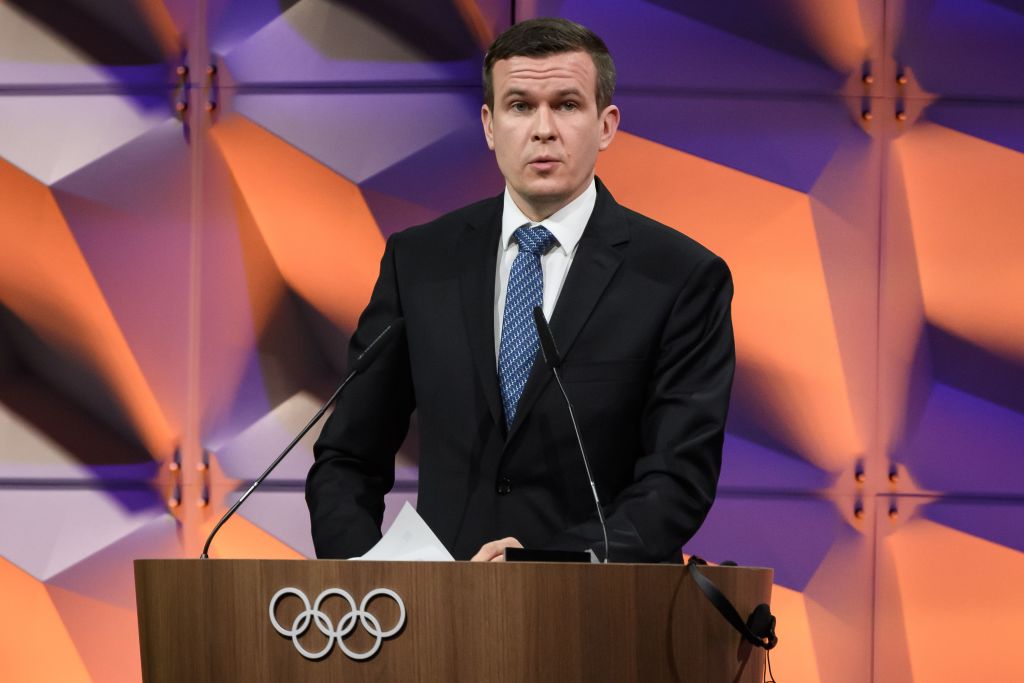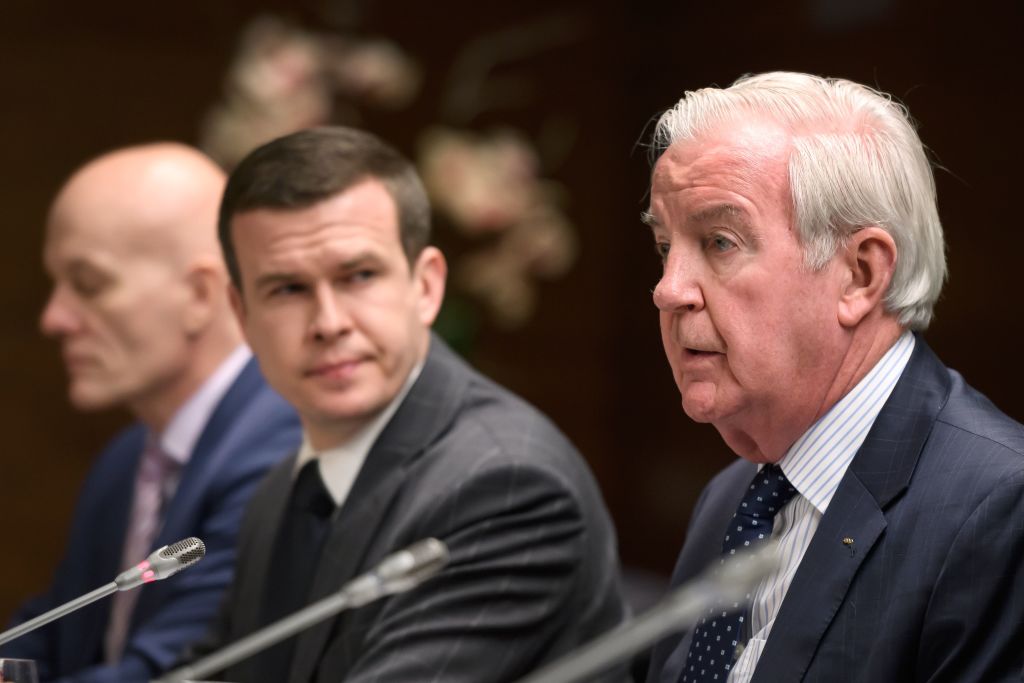Q&A: WADA president Witold Bańka on testing during lockdown
Anti-doping head says $36m budget 'sometimes sounds like a ridiculous joke' compared to cycling-team budgets

While outlining contingency plans for the season to resume on August 1 earlier this week, UCI president David Lappartient confirmed that there has been a 95 per cent drop in the number of anti-doping controls carried out in cycling in recent weeks due to the coronavirus pandemic.
The decision on whether the Tour de France and other events can take place this year is, of course, out of the hands of the UCI, ASO et al and dependent on the lifting of lockdown measures and travel restrictions in Europe – and beyond – over the coming weeks. But if competition does indeed resume, there seem to be few guarantees that out-of-competition testing will have returned to full capacity by the time of the Tour de France Grand Départ in Nice on August 29.
On Thursday, the World Anti-Doping Agency published guidance for anti-doping organisations in countries where restrictions are slowly beginning to be lifted. WADA president Witold Bańka stressed, however, that the pandemic – and its effect on testing – has demonstrated "the need for further innovation in anti-doping".
Previously Poland's minister for sport, Bańka succeeded Craig Reedie as president on January 1, defeating Linda Helleland in an election last year after pledging to engage stakeholders and sponsors in creating a 'solidarity fund' to help fill gaps in the global anti-doping network.
In a telephone interview with Cyclingnews, the former 400m runner discussed the state of anti-doping controls during the coronavirus pandemic. Although reluctant to make a pronouncement on whether the Tour de France should go ahead if anti-doping controls do not resume rapidly, Bańka reiterated his call for an increase in funding for anti-doping.
Cyclingnews: David Lappartient has acknowledged that anti-doping testing in cycling has been reduced by 95 per cent during the coronavirus pandemic. That kind of reduction is understandable given the scale of the current crisis, but it is still worrying. What is WADA and the anti-doping community doing to compensate for that lack of testing?
Witold Bańka: My strong message to athletes is that COVID-19 is not a space for cheats. It's true that many countries and federations have reduced testing now, and it's obvious for us that when people's lives are at stake, sport must take a back seat. But testing is not the only weapon we have. We have the athlete biological passport, we have long-term analysis of samples, and we have ongoing investigations.
The latest race content, interviews, features, reviews and expert buying guides, direct to your inbox!
This current situation requires us to think about the future and how to enhance the system. We are working, for instance, on dried-blood-spot testing, which is the collection of blood on paper, and it has many advantages. It is less invasive than current methods of testing urine or blood samples, and it requires only a small volume of blood for testing. It is also less expensive to collect and transport – less space is needed to store the samples – and there may be benefits with regards to sample stability. Our objective is to start this programme before Tokyo next year and fully launch it before Beijing [the 2022 Winter Olympics – ed.]
Then there is a second innovation, which is important for us, although it's very difficult to explain: artificial intelligence. We are actively looking for ways that AI can improve the anti-doping system. We already have a lot of data, and, using artificial intelligence, we can analyse that data and detect the possible strange or suspicious behaviours of the athletes. We would hope to have a good assessment about the potential for AI in the coming two years. So those are two strong, innovative weapons that I truly believe in the future we will use in the anti-doping system.
CN: Those are innovations for the future, but, as things stand right now, the Tour de France is due to start in under four months' time, and anti-doping controls are at five per cent of normal capacity. Is it really feasible to get testing up and running again in time to ensure a level playing field at the Tour? And if it isn't, should the Tour go ahead at all?
WB: I hope, and I truly believe, that as soon as possible we will come back to full testing and controls, but nobody knows what will happen next month. The situation regarding COVID-19 is very difficult. But if you're asking me about the Tour de France, then the UCI is in charge of testing and controls at the Tour de France, so maybe you should ask them.
The integrity and quality of the [anti-doping] programme is what matters to WADA. But ultimately, the responsible for the quality of the programme rests with the ADO: in this case, the UCI. I think that my advice to the people who will decide on the Tour de France is that you need to do everything to protect the health of the athletes, of the fans, and that's all. It's not right that I should create some pressure on those who decide about it. This is up to the organisers, and I think they will do everything to protect the health of the athletes.

CN: The Cycling Anti-Doping Foundation (CADF) maintains that the biological passport can help to compensate for the current lack of testing but, within cycling, there are concerns about its effectiveness. It seems that the UCI has been more reluctant to pursue cases since it dropped proceedings against Roman Kreuziger in 2015 after a costly legal process. Will the current gap in blood testing due to the pandemic make it even more difficult to open biological passport cases in the future?
WB: I believe the athlete biological passport is strong. With suspicious situations, we are trying to monitor them in strict cooperation with the responsible organisations. I agree that the anti-doping system maybe requires changes, and maybe more innovations in all areas, but that's all I can say about it.
CN: In recent years, anti-doping bodies have increasingly acknowledged that testing alone is insufficient, and a greater emphasis has been placed on investigation. Is that shift towards investigation going to become more pronounced as a result of the current gaps in testing during the coronavirus pandemic?
WB: Today, the anti-doping system is not only testing. We need to be innovative, and we need to use other tools like intelligence and investigations. I think this is the future of anti-doping: close cooperation between WADA, anti-doping organisations and law enforcement like Interpol and Europol. We are already working on this, and that is a huge change when you compare it to the past. In summary: DBS, artificial intelligence, and strong cooperation with law enforcement are, I think, the future of anti-doping.
My huge concern is that, when I look at the World Anti-Doping Agency – and even though we have many tools, great experts and many possibilities – the budget is $36 million dollars per year for the global regulator, which sometimes sounds like a ridiculous joke. Please compare it with the budget of some cycling teams…
CN: Will the economic impact of the pandemic affect the WADA budget?
WB: No, our current budget situation is stable and that's good, but I'm thinking about the future. During my campaign to be president of WADA, I underlined many times that my idea is to convince big sponsors, both public and private companies, to join the anti-doping solidarity fund. After the pandemic, I will do everything to convince the sponsors to finance some of the educational initiatives and partnership programmes of WADA. Legal actions cost a lot, and they require a bigger budget. We want to be stronger, and we are more active, but we need to improve the budget.
I think this is a responsibility for WADA and the whole anti-doping community – to do everything to increase the budget for anti-doping. This is also my mission, and I think the big objective ahead of me is to increase the budget for anti-doping. Unfortunately, at the moment, I am in lockdown and cannot travel to convince the partners, but I hope that I can do that as soon as possible after the pandemic.
CN: For 2021, the UCI has confirmed that the functions of the CADF will be absorbed by the new cycling unit of the IOC's International Testing Agency (ITA). Is that simply a political manoeuvre from the UCI or are there actual benefits to working with the ITA?
WB: The ITA has already demonstrated its capability to deliver high-quality programmes, and it is up to the UCI to decide about who is conducting the testing. It's not our main concern – the Cycling-Anti Doping Foundation and the Athletics Integrity Unit [the IAAF's anti-doping organisation – ed.] are also independent agencies, like the ITA.
What I'm concerned about is simply that the programme is of a high quality, and run in accordance with the WADA code and related international standards. The decision about who is conducting the testing is not ours – it's up to the UCI. We will, of course, monitor the situation. But as I said, the ITA has already demonstrated its capability to deliver high-quality programmes.

Barry Ryan was Head of Features at Cyclingnews. He has covered professional cycling since 2010, reporting from the Tour de France, Giro d’Italia and events from Argentina to Japan. His writing has appeared in The Independent, Procycling and Cycling Plus. He is the author of The Ascent: Sean Kelly, Stephen Roche and the Rise of Irish Cycling’s Golden Generation, published by Gill Books.